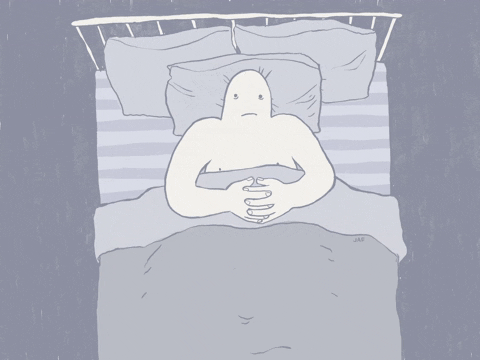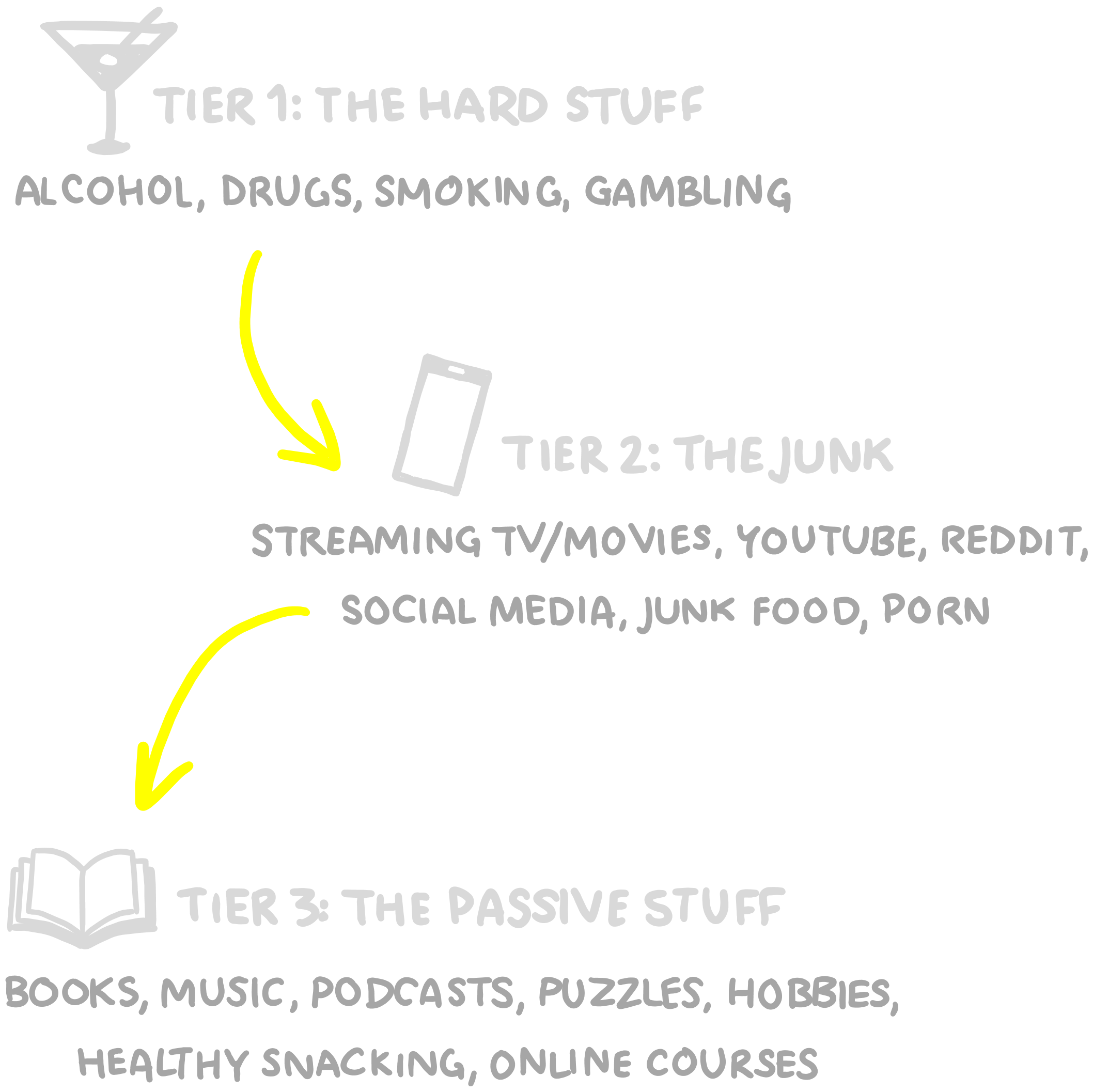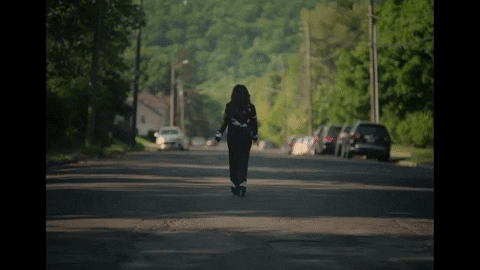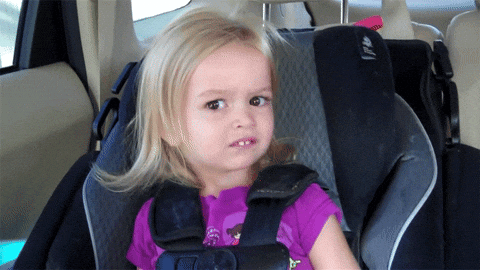Read this... if it's just not happening. If you just don’t have the spoons. If, despite giving up most of your vices, you still feel down, depressed, and lacking any motivation.
You've put in the work. Set up your website blockers. Deleted the social apps. Prepped your workspace. You sit down to work, take a deep breath, and again... nothing.
"Just use the Ghost-House Technique," you tell yourself. But when you try to observe what's going on inside... you're hit with something intense. It's overwhelming, suffocating, paralyzing.
I... I just can't do it.
What then?
Like what do you do when you just can't? When everything feels so utterly impossible and exhausting and hopeless?

Because here's the thing... this sentiment is a very real possibility.
And having lived through it countless times without ever being able to finagle my way out of it, I'm not going to pretend to possess some miracle cure.
If you have zero fucking spoons... you have zero fucking spoons.
Meanwhile, no self-help guru is ready to warn you about this. For two reasons: 1) they have zero idea what it's like havign not gone through it, and 2) no publisher would let them put something out that's not all up-and-to-the-right linear progress.
But it is real. It will happen. It will frustrate and discourage you. And it will lead you to serious doubts about you ever getting better with this method.
The Vice Flu
Laura McKowen, who is very much not a self-help guru, perfectly describes this sort of experience in her book "We Are the Luckiest: The Surprising Magic of a Sober Life":
In the first year of trying to get sober, I was tired all the time. Not the adrenaline-fueled tired I used to feel when I was still drinking, but something more weighted and bone-level, like the flu... More than once, I called in sick to work because I simply could not drag my body there… I slept eight, ten, twelve hours a night… And although I would have occasional bursts of almost manic energy… mostly I felt like I was slogging through mud.
I found this to be so frustrating and unfair because it seemed like now that I wasn't drowning myself in wine every night, life should automatically be… easier. Better.
My body should feel like a demigod’s. I wanted the energy to do all the things lighting up my brain: write more, start a podcast, start my book, fix up my apartment, clean my car, paint my bedroom, find a boyfriend, live—but most days, I could barely make it through the afternoon without crying.

Now, I'm tempted to use the term "withdrawal effects," but that's not what's going on here.
Unless your application of the method involves giving up drugs, alcohol, or heaping amounts of sugar, you're not going to experience any physical effects. Yet, even if it were the case, withdrawal effects—though potentially intense and dangerous—are temporary and treatable aspects of recovery.
So, what's up with these sudden drops in mood and energy? What is it that weighs you down and renders you utterly paralyzed and unable to do any work?
Well, just remember, you've been leaning on your vices as a coping mechanism. You've been using them to numb yourself from life's stresses, worries, regrets, insecurities, and unresolved trauma.
So, it's natural that, once you quit using your vices for such a purpose, the pain and discomfort they so expertly suppressed will creep back in and amplify.
And this creates an incredibly confusing and frustrating situation.
Because you've made positive changes. Giving up your vices should make you feel better, right? That's the normal expectation... But when the exact opposite happens, when your motivation and happiness plummet just days after quitting those vices—the very intervention that was supposed to improve everything—it can feel like a cruel joke.
And it's during these dark moments of frustration and despair that the first spores of rationalization and excuses begin to form—like mold and rot that thrive in dark, damp environments.
Here, in this vulnerable state, you'll first encounter that twisted little thought, like:
You know… maybe this whole 'Giving up social media, videogames and junk food' thing isn't a great idea. I mean, look at how crappy and tired I now feel.
I'm worse than before. Maybe I'd be better off—happier, more at ease, and even more motivated—if I took back my innocent little pleasures. Maybe I don't want to stick with these commitments after all.
With thoughts like these, no amount of "willpower" or "self-control" will help.
Once rational excuses form, once you return to a belief that you'd be better off with your vices than without them—because you've found evidence in those awful moods and feelings—it won't be long before you give in, find a way to circumvent your blocks, and fall back to your old habits.
How to deal with Sudden Mood Drops
If the problem is the sudden arrival of negative emotions, what, then, is the solution?
As I've mentioned, becoming aware of this is extremely important. This whole phenomenon truly is unexpected. As you embark on the method, anticipate and brace for negative sensations and thoughts, which might only arrive on day two or three and reappear sporadically over the ensuing weeks.
When it hits, treat it like the flu. Unplug from your situation. Let time pass. Give yourself permission not to start a million good habits, not to chase your dreams just yet, not to get all busy and productive just because you stopped with the bad stuff and that’s what everyone says you need to do next.
Whoever first said you need to replace bad habits with good ones clearly had no clue what it's like. Sure, that might work if you're trying to stop biting your nails, but for those of us dealing with serious, years-long bad habits? Yeah, not so much.
So, don’t pretend to be all swell, chipper, and grateful for every blessing of a breath just because you’ve convinced yourself this is how you’re supposed to feel now that you’re “free” from vices and bad habits.
Just allow what is to be.
Allow time to pass, and since that won’t always be easy, give yourself permission to “tier down” with your vices.
The 3 tiers of vices
I found a common, yet oddly unspoken theme in pretty much all the sobriety memoirs I've read throughout the years. Once the writer has given up alcohol, they allow themselves to indulge in lesser comforts. Think Netflix binges curled up under layers of blankets with a Costco bag of Sour Patch Kids.
They do this to help cope with the bad feelings the alcohol once pacified—and it's okay, for a while at least, because all that matters is they get through the difficult early stages of abstaining from their worst and most impactful vice.
You should do that too.
To help get through the pain and dreariness of Sudden Mood Drops,give yourself full permission to "tier down" with your vices.
🥃 Tier 1: The Hard Stuff
Tier 1 vices are the more traditional and destructive behaviors, many of which have been around for centuries. These include alcohol and drug use, smoking, and gambling. These behaviors are often highly addictive and can have severe consequences on one's health and life.
📱 Tier 2: The Junk
Tier 2 vices are seen as relatively benign, but as discussed previously, their impacts are insidious and occur gradually. Examples include streaming TV shows and movies, YouTube, Reddit, social media, junk food, and pornography.
📚 Tier 3: The Passive Stuff
Tier 3 vices include reading books, listening to music or podcasts, solving puzzles, engaging in hobbies, healthy snacking, and taking online courses. They are not harmful and can even provide benefits when done habitually. Nevertheless, they can still be considered vices in cases where they are used as a means to escape from discomfort.
So, if right now your vices happen to be Netflix binges and Sour Patch Kids (i.e. Tier 2 vices), then go ahead and allow yourself to indulge in a fantasy novel or lie down while listening to an old rap album you loved as a teen (i.e. Tier 3 vices).

As you'll learn next, dealing with the source of your bad feelings is going to be difficult and quite taxing, but nobody has the stamina to grind through this 24/7. You can't be faulted for needing to take a break with a little distraction.
Just ensure that the consequences of your coping vices are an order of magnitude less than the consequences of your original vices.
That's the key. When "tiering down," what matters is that the medication's side effects are acceptable relative to the original issue. Sure, you might gain weight after quitting cigarettes, but that's better than gaining a tumor in your lungs. You can deal with that later. And sure, you're still procrastinating if you're listening to music and podcasts, yet it's way better than continuous dopamine spikes from compulsive TikTok scrolling.
All that matters is you find a way to let pass a bit of time—without making your situation worse. Because it's only time that has the power to dissolve away VIDD.
Un-plug. Do nothing. Be Mindful.
If the second-best thing to do during Sudden Mood Drops is to kill time with a tiered-down vice, the first-best thing is to do nothing.
Sit on your couch and stare at the wall. Go for a long walk. Take a day trip out in nature.

From there, your job is just to let everything internal—the stuff you've been impulsively escaping from and relieving with your vices—surface and run its course.
You can do this by simply observing. By observing your feelings and emotions. By sitting with your frustrations, stress, regrets, worries, and fears. By listening to the thought loops without judgment.
Feel the cravings. Get curious about what they feel like in your body. "Look" at the sensations of hopelessness, apathy, or depression itself.

Through this act of gentle but deliberate observation—or mindfulness, which we learned about earlier—you'll be able to take a seat in the back row of your mind's very own three-ring circus.
This is different than how you and I normally live. Normally, yeah, we might "go" to the circus. But we find ourselves tossed into the ring with the obnoxious MC, evil clowns, and hungry tigers. So, think of this as an occasion to attend the circus—that mandatory human experience—while giving yourself permission to just sit way up in the stands and observe the chaos from a distance.
After a little while, if it gets too intense or else boring and repetitive, step out of the tent and go for another walk, crack open a book, or listen to an old album.
Come back for a little more mindful self-therapy as needed.
Emotional State Permanence Bias
You know what I find to be both the strangest yet most consistent thing about recovering from tech addiction and dealing with depression?
When I find myself waking refreshed and optimistic—when I've gotten the ball rolling with a few focused work sessions or workouts, or when I've made it a solid ten days without overindulging in my vices—I can't imagine a future where any of that could change. The notion of going back to a dark and depressed rut feels impossible; the idea of watching crappy YouTube or TikTok videos for hours is absolutely repulsive.
The reverse is even more true.
When I'm feeling down and out—when the dark clouds of hopelessness, self-contempt, and apathy obscure everything positive; when my motivation is down to negative 1000 and it feels like I couldn't pry myself away from my vices—I'm utterly convinced that this is how I will be and feel forever. I can't imagine a future where I am hopeful, energized, and free from my compulsions.
In short, however I feel mentally at any given moment is how I expect to feel forever. Any deviation is unfathomable.
I call this "Emotional State Permanence Bias." It's a cognitive distortion and error in thinking where our brain tends to extrapolate our current emotional state indefinitely into the future.
But your inner state is never permanent. It ebbs and flows naturally like the ocean tide, despite feeling like a storm with no end in sight.
I mention this to remind you that these low moods won't be permanent, even if it feels that way—and it will feel that way. Time will pass, and so will the sentiment and its accompanying gloomy outlook.
The Vice Flu and subsequent Emotional State Crashes will probably suck. It might be hard. It might feel like you'll be stuck feeling that way for life. So, when you're caught up in it, just remember that things will get better. Remind yourself about Emotional State Permanence Bias.
Whereas in the past you may have reached for your vice to relieve these bad feelings, only for them to come back even worse, this time you'll just observe it and let it run its course.
This time, you'll know what to do.
